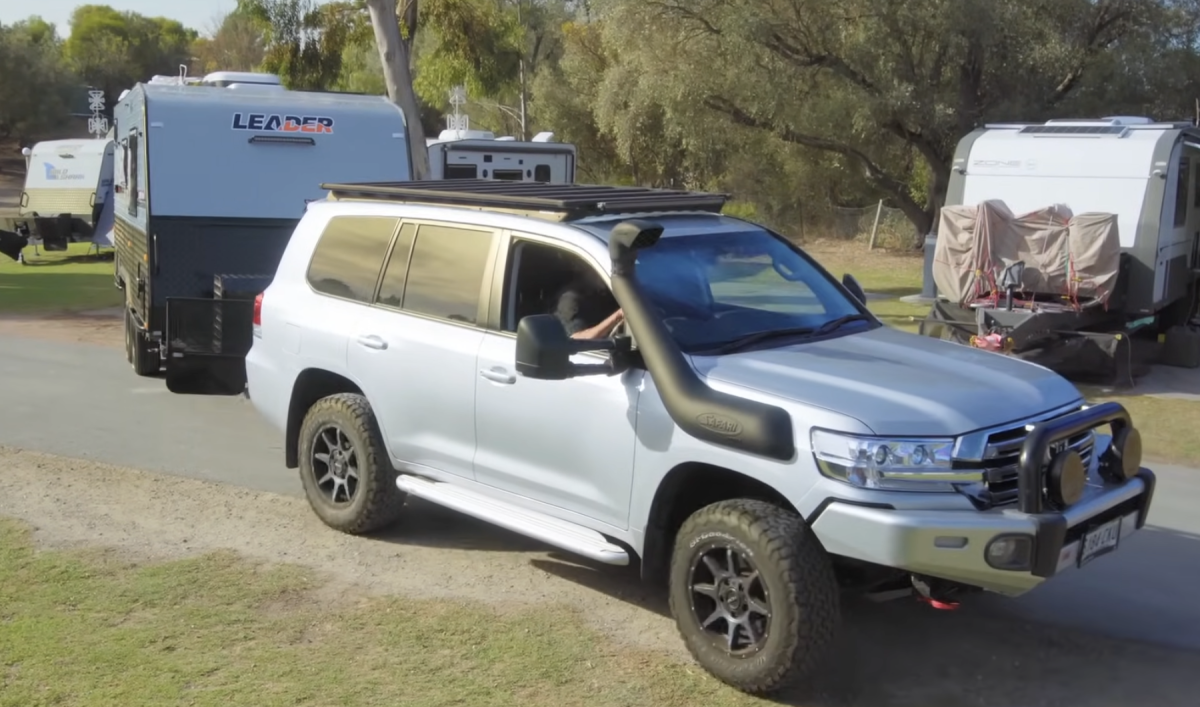
For generations, caravanning has been part of Australia’s way of life—a symbol of freedom, independence, and the joy of discovering new places. But lately, that symbol has become the centre of a growing debate about space, safety, and what’s fair on suburban streets. New parking rules could soon change how and where caravans are kept at home.
As councils across the country review their policies, caravan owners are facing growing uncertainty about what lies ahead.
What began as a handful of local complaints has now become a national conversation about how communities can share their streets fairly.
Councils push for change
Australia’s peak caravanning body is calling for fairness as state and local governments consider tighter rules on caravan parking. The Sunshine Coast and Gold Coast councils are leading the latest push, presenting a joint motion at this week’s Local Government Association of Queensland (LGAQ) conference.
The councils say they’ve seen a steep rise in parking-related issues, with the Sunshine Coast alone receiving around 700 service requests each year. While regulations already exist, residents and officials argue the current rules are no longer keeping up with demand.
At present, vehicles longer than 7.5 metres or heavier than 4.5 tonnes can’t park in built-up areas for more than an hour unless they’re loading or unloading. Parking on verges, footpaths, and nature strips is banned, and vehicles must leave at least three metres of roadway clear for traffic.
Still, some locals say these measures fall short. ‘Community members tend to raise concerns relating to the safety of parking, the amenity of the area and long-term storage of these vehicles,’ a Sunshine Coast Council spokesperson told Yahoo News. ‘In most cases, council officers find that vehicles are parked lawfully or can park lawfully with minor adjustments.’
Residents call for tougher action
A local online petition has attracted around 1,200 signatures from residents calling for stronger parking regulations.
‘We, the undersigned residents, ratepayers, and concerned citizens of the Sunshine Coast, hereby petition the Sunshine Coast Council to take immediate and decisive action to regulate the long-term, unsafe and unattended parking of caravans, campervans, motorhomes and other large recreational vehicles (including boats and trailers) on public streets and council-controlled land,’ the petition states.
The industry calls for balance
Jason Plant, CEO of Caravanning Queensland, acknowledged that neighbour concerns about congestion and community harmony are genuine. He said councils should ensure any new restrictions are coupled with state-wide guidance ‘that provides definitions, thresholds and fairness.’
Plant warned that inconsistent rules between councils could confuse owners and drive up storage costs. ‘Overly restrictive street-parking rules could impose a cost or accessibility barrier to caravan ownership and use. If owners are forced to remove caravans from street parking, alternative storage may be costly or unavailable,’ he said.
He added that the recreational vehicle (RV) industry plays a significant role in tourism and the broader economy, and that any changes should take those flow-on effects into account.
Working together for solutions
Plant said the Caravan Trade and Industries Association of Queensland (CTIAQ) supports collaboration between industry, government and communities, but cautioned against sudden heavy-handed restrictions without providing viable alternatives for storage and use
Queensland Transport Minister Brent Mickelberg, who will attend this week’s conference, said councils already have powers to make local parking laws, but the state is open to helping strengthen them. ‘We’re happy to work with all councils to help deliver better solutions for their communities,' he told the ABC.
Source: Facebook / Yahoo News Australia
A growing lifestyle, growing challenges
According to the CTIAQ, more Australians are taking up caravanning than ever before—a trend it calls ‘fantastic’ for tourism, regional growth, and the lifestyle economy. But with that popularity comes new challenges for neighbourhoods balancing convenience with safety.
Plant said most caravan owners are responsible and considerate, and he encouraged them to plan ahead. ‘Our advice to caravan owners is to think ahead about storage—whether that’s using off-street options, dedicated caravan storage facilities, or working with neighbours to make sure everyone is comfortable.’
As councils weigh up new measures, the goal will be finding balance: keeping streets safe and accessible while ensuring caravan owners aren’t unfairly penalised. After all, the great Australian road trip has always been about freedom—and with the right planning, there’s room for both adventure and neighbourly harmony.
Do you have a caravan parked at home—or a neighbour who does? How do you think councils should handle street parking rules? Share your thoughts in the comments below.







